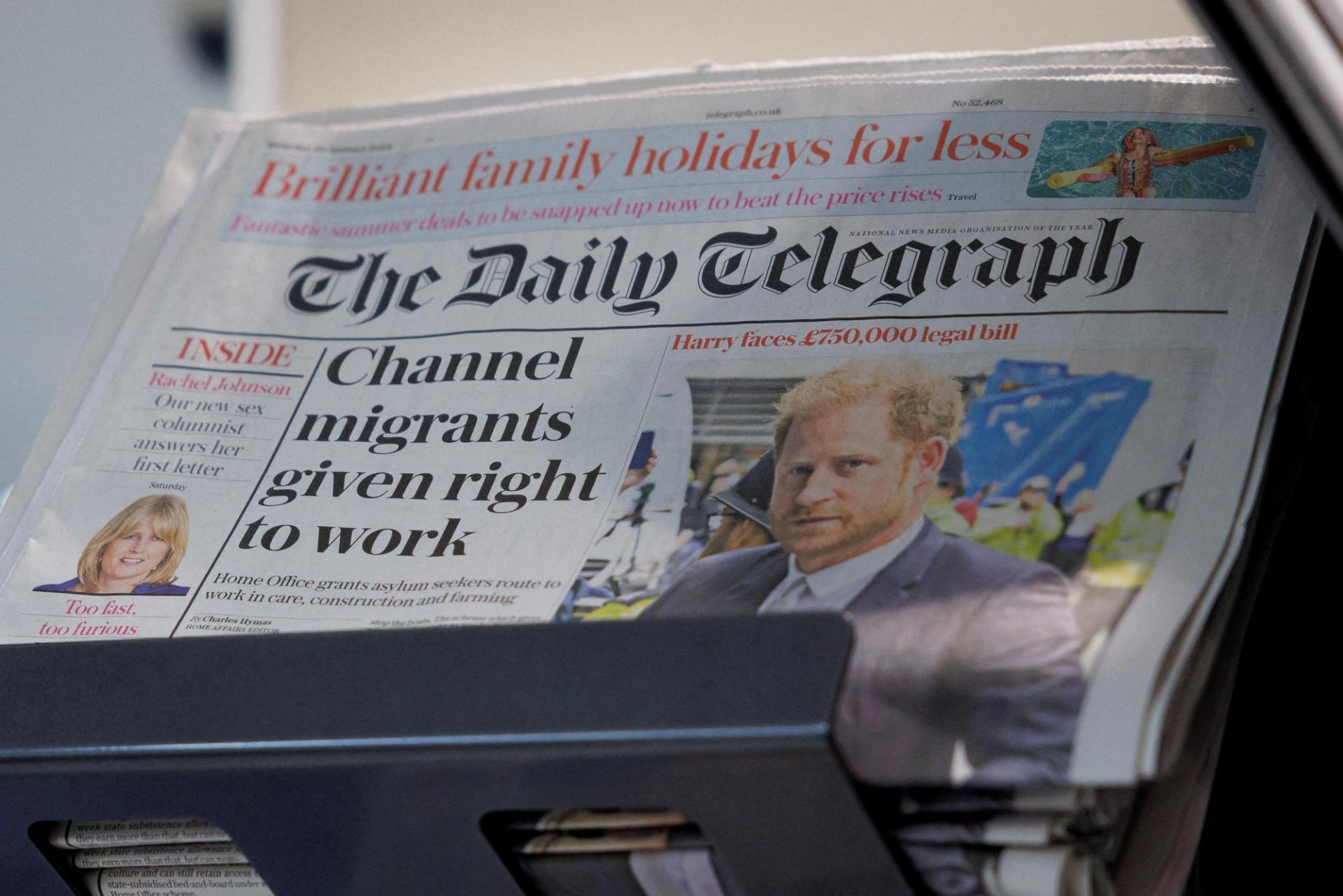The News
The U.K. on Wednesday said it would ban foreign governments from owning newspapers and magazines in the country, fueling an international debate about overseas influence on both traditional media and social platforms such as TikTok.
The decision follows concern over the proposed takeover of The Telegraph newspaper and The Spectator magazine by a United Arab Emirates-linked firm backed by Emirati Vice President Sheikh Mansour.
Members of the ruling Conservative Party — who have a close relationship with The Telegraph and The Spectator, both right-leaning outlets — had expressed fear the deal would jeopardize editorial independence.
Culture minister Lord Stephen Parkinson said the law would not extend to broadcast media, but added that the bill’s target is specifically “foreign state ownership,” which would exclude overseas companies like Rupert Murdoch’s News Corp from operating newspapers in the U.K.
Redbird IMI — the Emirati entity seeking to buy The Telegraph and The Spectator — said it was “extremely disappointed” by the move, adding that its desire to buy the newspapers was simply prompted by a belief that the U.K.’s media sector was “worthy of further investment.”
“As with each of our deals, we have been clear that the acquisition of The Telegraph and The Spectator has been a fully commercial undertaking,” Redbird said.
Across the globe, more governments are considering bans on foreign firms operating media operations within their borders, including a proposed bill in the U.S. that would force TikTok to divest from its Chinese parent company ByteDance.
SIGNALS
Even a minority stake held by a foreign entity is seen as reason for concern
RedBird IMI had reportedly offered to lower its ownership stake to below 50% or use non-voting shares to buy the papers in an effort to appease lawmakers and secure the bid. But it’s hard to see the business logic in pushing for a minority stake while also losing operational control, Fraser Nelson, editor of The Spectator wrote, fueling the theory that “the real motive for this bid is not operational but to acquire influence via a significant stake in the national press.” The U.K. government had previously expressed national security concerns over Emiratis owning a minority stake in Vodafone, and “if such a small stake in a telecoms infrastructure company causes national security concerns, a stake in a national news publication will likely do more so,” Nelson wrote.
Governments can abuse foreign ownership rules to circumvent critics
Authoritarian and nationalist leaders have historically used foreign ownership laws to subdue critics. In 2014, Human Rights Watch blasted the Russian government’s decision to cap foreign ownership of Russian media at 20%, which the group said would strangle freedom of expression and devastate a once-diverse media market. Independent journalism in Russia has since virtually been eliminated, particularly after the invasion of Ukraine.
In the Philippines, Nobel laureate Maria Ressa — a vocal critic of former President Rodrigo Duterte — faced up to 21 years in prison because her news website Rappler had received donations from an American philanthropic investment fund, in an alleged violation of Philippine law. Analysts saw the charges as a retaliation by the Duterte administration, and charges were later dropped under current President Ferdinand “Bongbong” Marcos. In India, meanwhile, the BBC was forced to restructure after it was found to be in violation of foreign ownership laws. The move came months after tax authorities raided the network’s offices following the release of a documentary critical of Prime Minister Narendra Modi.
Move to control media ownership reveals Western leaders’ fears as democracies weaken
Western governments are working to assert control over media outlets owing to concerns of Russian and Chinese election interference, but the decision to bar or limit foreign ownership of newspapers or social media reflects “a certain lack of courage of their own convictions” as their democracies weaken, according to Semafor’s Editor-in-Chief Ben Smith.
The U.S. and U.K. were once so confident in their democratic systems that they could “laugh off the notion that their citizens might be drawn toward authoritarian models of governance, or tricked by propaganda,” but “that era is now over” as misinformation comes to dominate online narratives, Smith said.

